Everything You Need to Know About the Difference Between Therapy and Coaching
The coaching industry is booming and Millennials are the new therapy generation. With so many big issues in the world right now, it’s not surprising that people are turning to therapy and coaching en masse. If you are stuck or struggling, you might be wondering if you need a therapist or a coach? What’s the difference between therapy and coaching anyway?
I want to preface this blog by stating that I am an advocate for both therapy and coaching. I am a twice certified coach and a Master’s qualified psychotherapist; providing psychotherapy and psychotherapeutic coaching. Over the last 20 or so years, I have participated in my own weekly, depth psychotherapy, eating psychology coaching, parent coaching with a Mothercraft nurse and business coaching.
As someone with insider knowledge and experience in both fields, I hope this article will dispel some myths and provide you with some clarification around coaching and therapy.
What is Psychotherapy?
Psychotherapy is often described as a journey of the soul; a deep exploration of your inner and outer world. For whatever reason, you may be suffering and you may have lost contact with your true self; through the therapeutic relationship with your therapist, psychotherapy seeks to restore and renew this connection).
The primary purpose of therapy is to build healthy relationship with your ‘self’, others and the world at large.
The Psychosynthesis Trust in London says that therapy is a confidential, safe and sacred place where you can meet your challenges, pains and shadows, as well as your light and joy. It includes the full range of human experience by deep exploration and building your awareness around the physical, emotional, psychological, social, sexual, cultural, ecological and spiritual elements and influences on your health and well-being. Ultimately psychotherapy can transform your life by unlocking the potential inherent within.
In your therapy you might work through early childhood and past trauma as well as current concerns in the here and now – this of course takes time – there are few quick fixes in therapy. However, the awareness and skills you learn in therapy will last you a lifetime.
Many coaching vs therapy infographics would have you believe that therapy is just about finding out ‘why’ you are suffering, stuck or behaving the way you are; however, this is the number one myth about therapy. Therapy is a powerful way to help you find new life direction and a sense of empowerment even after the most unimaginable suffering. Therapy is not just about building awareness and understanding, it’s about activating your will, life energy, sense of personal agency and your capacity for making healthy choices so that you can take action and change behaviours which no longer serve your wellbeing.
Another myth is that therapy solely focuses on diagnosis. Whilst psychotherapists can and do diagnose severe psychological disturbances, a holistic psychotherapist is more interested in the potential of human nature rather than diagnosis and equating you with your trauma or symptoms. The therapist uses ‘bifocal vision’ to see and help you to see, that you are more than your problems.
Psychotherapy is an art and a science. I, like many therapists these days work from a holistic and integrative perspective. From this stance, therapists integrate the best that western psychology and science have to offer, along with eastern and western spiritual theories, practices and techniques; such as the search for meaning and purpose, and the art of presence, mindfulness, meditation and visualisation.
What is Coaching?
Coaching tends to fall into two main camps; performance coaching and self-development coaching. At the heart of both, is change.
Anthony Grant, in his article about the impact of life coaching on goal attainment, defines coaching as a,
“collaborative solution-focused, result-orientated and systematic process in which the coach facilitates the enhancement of life experience and goal attainment in the personal and/or professional life of normal, non-clinical clients.”
In Coaching and Mentoring, Parsloe & Wray write that coaching focuses,
“as rapidly as possible on potential solutions that the person can recognise and take personal responsibility for implementing.”
The gold standard in coaching, The International Coaching Federation (ICF), write,
“Coaching is a thought-provoking and creative partnership that inspires clients to maximize their personal and professional potential, often unlocking previously untapped sources of imagination, productivity and leadership.”
Coaching draws significantly from humanistic and positive psychology and from some of the more shorter-term therapy models, including Cognitive Behavioural Therapy and Solution Focused Therapy.
Just as with humanistic and transpersonal psychotherapists, the underlying belief held by coaches, is that you are already whole and you already have everything you need to succeed. It’s the coach’s job to ask you the right questions and guide you towards your own inner resources.
The most obvious difference between coaching and therapy is that coaches are not trained to diagnose or work at depth with mental health concerns such as anxiety, depression, past trauma, and any other underlying issues. Coaches are mostly trained to work with the here, now and how to. Whilst many coaches have basic counselling skills, such as active listing, they are not trained to provide therapy and should refrain from doing so.
Where psychotherapy tends to start out more aligned with feminine energy (qualities such as acceptance, being, love, empathy, compassion, feelings, love, soul, self realisation) and then moves into more masculine energy (qualities such as accountability, action taking, direction, dynamic, goal setting, doing, results focused, thoughts and self-actualisation) – coaching starts from the more masculine end of the spectrum.
Most coaching requires a baseline level of good health to be effective. In What’s the Difference Between Coaching and Counselling?, Sharon Martin writes,
“Coaching is also an appropriate choice if you’ve previously worked with a therapist and your depression or anxiety (or other mental health) symptoms are well managed. For some, it will be important to first work with a therapist and resolve some core issues and then work with a coach later for help achieving particular goals.”
How Does Therapy Work?
Relationship is at the heart and soul of psychotherapy.
The relationship you have with your ‘self’ is the foundation for all future relationships. Self-assured children learn how to become secure through their primary attachment figure. Therapy works in a similar way.
Regardless of the modality, research shows that when therapists provide a safe and secure base via a compassionate and boundaried therapeutic relationship, you are able to build trust, exercise self-expression and thrive emotionally. In therapy, you may experience dependency as you work with your feelings and needs, this is a normal and useful part of therapy – you can read more in Why Counsellors and Psychotherapists Recommend Weekly Therapy.
As you internalise the whole therapy experience – you slow down, turn inwards, increase your awareness, build inner security and your capacity for connection with your deepest self, become independent and make healthy choices – all of this will allow you to end therapy and thrive in your relationships, life and the world at large.
There is a deeply pervasive myth that if you go into therapy, you will there forever. Not true. Dr Isabell Stringer, Beyond Talk Therapy, It’s Time to Heal and Grow, says that the goal from the beginning of therapy is to prepare you to leave, similar to being part of a healthy family.
Your therapist will draw on a range of techniques throughout therapy. This might include but are not limited to: talk therapy, dream exploration, symbolic artwork, exploring fairy tales, myths and stories, journaling, creative visualisation, meditation and mindfulness, self-reflection, homework, reading, self-care practices and psychoeducation.
How Does Coaching Work?
Pioneer of coaching in the workplace, author of Coaching for Performance and founder of the GROW coaching model, Sir John Whitmore, says that coaching works by setting goals which are inspiring, challenging and specific; also, that are measurable and achievable. The GROW model, as one example, promotes self-confidence and self-motivation, leading to increased productivity and personal satisfaction.
Depending on the type of coaching, the coach will teach you new skills, give you goal sheets and will monitor your progress in relation to behaviour change at each session. Journaling as well as some of the other techniques used in therapy may also be suggested, such as mindfulness and psychoeducation.
The relationship with the coach is also important but it isn’t used as the primary healing factor like it is in psychotherapy. This is because coaches are not trained to work with the projections and transference in the here and now. Coaches often tend to use more self-disclosure as a way of providing hope and motivating you to take action.
The Therapeutic Frame
Therapy sessions of 50 minutes to one hour are typically weekly and can last short-term (0-3 months), medium term (3months to a year) or long-term (1+ years and open ended).
Therapists are held accountable by their state or national governing body. They therefore spend a lot of time in the first session explaining how therapy works, the complaints process, confidentiality and boundaries. This frame helps you to build trust and to feel safe and secure.
Psychotherapists work in private practice, hospitals, treatment centres and in government agencies. In private practice, you can choose to pay privately or you may be able to receive insurance rebates for psychology services through Medicare or through private insurance in some countries.
Whilst therapy generally takes place in a private clinic or home office, many therapists are providing therapy out in the world, for example, equine therapy takes place on a farm or ranch, walk and talk therapy takes place outside, dance or drama therapy takes place in a studio. Therapy also takes place in residential treatment centres.
Some coaches and counsellors might describe the therapy frame as rigid, which has negative connotations. Because many therapists work with people who have suffered with early childhood emotional neglect and trauma, the frame is considered the safe and secure base from which to explore your inner and outer world. With a trauma history, there was likely a lack of consistency, safety, routine and reliability – the therapist and the frame provide this so that you can repair early attachment related injuries. The therapist relaxes the frame when making specific interventions to suit you as the client.
It’s important to remember that people are one and many. Whilst some people may present as high functioning – adult even – there is always a younger, needy, inner child (and others!) present in the room. It’s this child that is most important in relation to why therapists hold the boundaries regarding the consistency of therapy; same place, same day, same time. Therapy provides a different experience from that which was experienced in the person’s early life; a still point amidst the chaos.
The Coaching Frame
Coaching sessions can be anywhere from 30 minutes to 1.5 hours typically, and can be scheduled weekly, fortnightly or monthly. Coaching is always private pay; sessions are not covered by insurance or Medicare. Some coaches work open ended and some sell their sessions in packages, for example, my coaching packages are 6 sessions and these are based around a 6-step process.
Because the coaching industry is not regulated, coaches can work globally and across state lines either in person or online. Sessions can take place in a coach’s office, on the sporting field, at home, at a restaurant or café, whilst taking a walk or online… the sky is the limit.
In recovery coaching, often coaches provide telephone calls and texting as part of the fee package. This can be very useful if for example, you are recovering from an eating disorder and need to reach out to your coach instead of bingeing or purging. Likewise, for someone in alcohol or drug addiction recovery.
What Are the Benefits of Psychotherapy?
There are many benefits of psychotherapy, here are some of the most common:
- Find resolution of the pervasive underlying causes of your problems
- Learn how your problems are the catyst for growth and transformation
- Heal from early childhood trauma and abuse
- Find freedom from self-destructive thoughts and behaviours
- Build a toolbox of coping and life skills
- Facilitate healthy life long changes
- Build a strong foundation for healthy relationships
- Increase self-esteem, self-worth and self confidence
- Become more intuitive and creative
- Reconnect with your true self
- Discover value, meaning and purpose in life
- Get in touch with your whole being: body, feelings, mind, sexuality and spirituality
What Are the Benefits of Coaching?
The most obvious benefit to coaching is that you are very likely to see quick, positive results as an outcome. The AGAPE International Coaching Conference also highlights the following benefits:
- Improvement in individual’s performance, targets and goals
- Increased openness to personal learning and development
- Increased ability to identify solutions to specific issues
- Greater ownership and responsibility
- Development of self-awareness
- Improvement of specific skills or behavior
- Greater clarity in roles and objectives
- The opportunity to correct behavior/performance difficulties
What Training do Therapists Have?
Classic psychotherapy training such as psychodynamic, Jungian, psychosynthesis, Gestalt, Buddhist, existential, transactional analysis, art psychotherapy and somatic experiencing for example, take anywhere from 4 to 8 years for the therapist to become qualified. The training is almost always in person and is experiential which means that the trainee has an experience of the theory and technique in practice; this is via individual, small and large group exercise.
As part of the training, therapists are required to submit research essays, case studies, dissertations and anywhere between 200-500 clinical practice hours with clients which have been supervised in individual and group supervision.
Not all psychotherapy trainings are equal and psychotherapy is not regulated in all countries. Ethical and good quality therapists will be registered with their state and/or national governing body. Because psychotherapy isn’t a registered title in all countries, unfortunately many health professionals say that they provide psychotherapy when they aren’t in fact trained in psychotherapy at all. A qualified therapist will have letters and numbers after her name. eg. Jane Smith MA Psych. PACFA Reg. 12345
What Training do Coaches Have?
Elias Aboujaoude in Psyche, writes,
“It’s easy to become a coach. Aided by low barriers to entering the profession, coaching has grown into an industry of more than 53,000 practitioners worldwide in 2018.”
Some coaches do not have any training. Some have a few hours of training. Some have a few months to a year of training. Some have degees in coaching.
Globally, coaching is a non-regulated industry; this means that there are no official educational requirements for coaching courses and anyone can hang a shingle on their door and call themselves a coach.
I have participated in two coach trainings (The Institute for the Psychology of Eating and The Carolyn Costin Institute); both were extremely rigorous and took approximately 8 months to 1.5 years to complete. However, a quick search on the ICF website for coach training in my state, brought up four organisations where the training in total takes 4.5 hours to 15 hours to become a certified coach.
Therapist Continued Professional Development Requirements
The majority of psychotherapists are registered with their national or state board and are required to participate in a specific number of hours per year of continued professional development (CPD) to stay registered/accredited/licensed (this depends on the county). In Australia (PACFA) and the UK (UKCP), the yearly requirements are 20 hours a year. CPD is aimed at raising the therapist’s awareness in terms of contemporary thinking, best practice, the latest evidence and might include attendance at training and conferences, participating in research, writing journal articles or reading the latest research and techniques in psychotherapy.
Coach Continued Professional Development Requirements
Because so few coaches are registered with a peak governing body, most coaches are not therefore required to participate in annual continued professional development.
If the coach chooses to register with the ICF, they require registered participants to take part in continuing coach education. There are a few training organisations that do require their coaches to participate in ongoing continued professional development, The Carolyn Costin Institute is one of these.
Therapist Clinical Supervision Requirements
Clinical supervision is a process whereby therapists are supported in their role by another therapist who is more experienced and trained in clinical supervision. Therapists participate in individual, peer and group supervision for the duration of their working careers. The main aim of supervision is to ensure therapists are doing no harm, to ensure the efficacy of the therapist’s practice, to provide professional development and self-care for the therapist; all of which benefit you as the client and the outcomes of your therapy.
In Australia (PACFA) and in the UK (UKCP), as well as many other countries, at least monthly clinical supervision for the duration of the therapist’s career, is a requirement of the governing psychotherapy board.
Coach Supervision Requirements
Coaches are not required to participate in any form of supervision in regards to their ongoing coaching practice.
Those who choose to register with the ICF are required to participate in 10 hours of mentor coaching within a 3 year period.
Therapist Personal Therapy Requirements
Many psychotherapy training centres require their trainee therapists to participate in weekly psychotherapy for the duration of their training. This works out at about 40 sessions a year, for at least 4 years but it could be up to 8 years.
The College of Psychotherapy branch of PACFA requires a minimum of 200 hours of personal psychotherapy before the psychotherapist can register with the college.
Why is this? Firstly, it is highly debatable about whether a practitioner is actually providing psychotherapy if they have never been in psychotherapy themselves. Secondly, most people who come to the helping professions, whether it is therapy, coaching, counselling, social work, psychology and even nursing, are often what Jung called, wounded healers. This means that we often come from our own trauma history. It is absolutely necessary for wounded healers to have worked through their own suffering, their own dependency issues, their own shit basically – without doing so, that which is unconscious can get projected onto the very people we are trying to help and this can be dangerous to those who are extremely vulnerable. If you would like more information, I wrote about all of this at length in my article, Why Your Therapist Should Be in Therapy.
Coach Personal Coaching Requirements
It is extremely rare for coach training to require their trainees to participate in their own coaching. If it is a recovery coaching program, there will most likely be a requirement that the coach has at least 2 or more years in recovery themselves before they are allowed to participate in the training. These coaches have likely had their own treatment, therapy or coaching.
The ICF requires its credentialed coaches to participate in 10 hours of mentor coaching within a 3 year period.
The Types of Therapy
There are many schools of therapy. Each therapist will likely subscribe to a core school of thought and will then add modalities overtime via continued professional development. The therapist will then likely apply their psychological thinking to their area of specialty, e.g. addiction, anxiety, creative processes, depression, eating disorders, life crisis, relationships, and spiritual crisis. It’s important to note here that therapists do not just work with problems, many also work with unleashing creativity, working towards specific work or life goals. Some of the most popular schools of thought are:
The Types of Coaching
Many coaching styles and techniques have emerged out of humanistic, positive psychology and human resources. Some of the most popular schools of thought influencing coaching models today are:
The Reasons You Might Seek a Psychotherapist
You might seek therapy for some of the same reasons that you are considering coaching.
In the recently updated definition of psychotherapy, The Counselling and Psychotherapy Federation of Australia writes,
“Many people enter psychotherapy because they are curious about themselves. They may seek to gain a more accurate and fuller picture of themselves, insights into why they behave the way they do, why they relate the way they do, and understanding of patterns that play out in their life.
Some clients are functioning satisfactorily and are seeking connection, revitalisation, meaning and increased creativity. Other people come to a psychotherapist because they are experiencing discomfort, dissatisfaction, behavioural or relationship disturbances or suffering in their lives. Some are wanting a more stable, deeper exploration of issues that they may have been helped with by other professionals to deal with on a largely functional level as distinct from an internal transformational experience.
Psychotherapists work with people who have a wide range of presenting concerns. Some such concerns are: depression, anxiety disorders, personality disorders, eating disorders, self-harm, illness, addiction, grief, trauma, abuse, relationship difficulties in personal life or at work, communication, intimacy and commitment problems, and a yearning for more from life.”
Therapy is a life-changing experience from the inside out.
The Reasons You Might Seek a Coach
Coaching is a wonderful resource when you need guidance, to help you to build a new skill or stay motivated with goals. Here are some examples:
- Business coaching helps to gain clarity, goals, vision and growth of your business
- Mothercraft coaching helps mums and dads with guidance and practical support in their new role as parents
- Life-coaching helps you identify your goals and develop an actionable plan to achieve them in the areas of unhelpful habits and behaviours, finance, relationships and life in general
- Health/wellness coaching can help you to manage or overcome chronic illness and work towards achieving optimal wellbeing
- Fitness/sports coaching is useful for helping you stay on track with your fitness goals and if you want to learn a new sporting skill or enhance your technique
- Recovery coaching can help you to transition from a treatment centre or the coach can be with you out in the world where your therapist can’t. Some coaches even live in
What Are the Limitations of Therapy?
Probably the most obvious limitations of therapy is that it takes time and money. Often when someone arrives at the therapist’s door, they are in extreme distress and almost always seeking immediate relief to their problems; they just want to feel better. In Why Does Therapy Take So Long?, Lauren Vinopal writes, ‘Patients looking for immediate relief are unlikely to find it. That sucks, but there’s some good news as well.”
She goes on to say,
“The vast majority of therapists seem to agree on one thing: Progress takes time. Lots of time. For those engaged in therapy and even for those committed to it over the long term, this can be profoundly frustrating and also profoundly expensive. This leads to attrition. It shouldn’t. The problem isn’t ultimately that psychotherapy takes time, it’s that people approach the process looking for relief rather than understanding the hard work ahead.”
The good news is that therapy works and is a resource that will last you a lifetime. Therapy turns people’s lives around.
Another limitation of therapy is the way that it is perceived by the public. National Psychotherapy Day in the US states,
“Therapy suffers an image problem.”
Whilst this list is not exhaustive, here are some of reasons that therapy has an image problem:
- It is often dramatized and portrayed negatively on TV and in the movies
- Some very powerful ‘gurus’ have toxic infographics doing the rounds promoting coaching (to suck people into their coach training and coachee marketing funnels) and portray therapy in extremely negative ways
- It’s hard to make therapy look sexy due to therapists adhering to strict ethical guidelines around solicitation of testimonials and the use of client stories
One of the biggest limitations to therapy comes from within the psychology field itself. Medically orientated psychological models which use pathologizing and stigmatizing language and diagnostic labels have hijacked psychotherapy and they dominate government funded treatment. It might surprise you to know that many counsellors and psychotherapists around the globe do not subscribe to medically orientated illness or disease models; they work in highly creative, integrative and holistic ways where therapy is about tending to, and taking care of your soul.
What Are the Limitations of Coaching?
Critics of the coaching industry suggest that there are several reasons that the industry is booming: coaching offers new skill building, the industry isn’t regulated and anyone can hang a coach shingle on their door. Ouch. Other criticisms include the lack of standards, research and metrics to ensure efficacy (Laura Hauser, 2009).
In the 2016 ICF Global Coach Study, the number one obstacle identified by ICF Professional Coaches is ‘untrained individuals who call themselves coaches.’
In Life coaching — rising in popularity should it be regulated? critics of the coaching industry are dissatisfied with ‘pseudo credentialing mills’ and don’t believe the ICF to be credible due to a lack of outside regulation. They also believe coaching to be harmful to clients because coaches who are not trained by a reputable training organisation are not aware of the difference between coaching and therapy, therefore providing substandard versions of both. Confidentiality and adherence to other standard ethics within the mental health arena are also lacking for coaches who are untrained.
The California Association of Marriage and Family Therapists, in their comprehensive article – Coaching versus Therapy – state,
“Unlike licensed psychotherapists or properly supervised registered associate, coaches do not have the legal authority and, therefore, may not lawfully diagnose or treat their clients’ mental health illnesses. This is true regardless of whether a coach has received education and training similar to that of a psychotherapist. Furthermore, coaches may not delve into the past, provide a cure to a mental illness, or relieve mental and/ or emotional suffering. Coaches may not seek to resolve the deeper underlying issues that cause serious mental and/or emotional problems. A coach who addresses issues of mental health or relationships without being appropriately licensed may be unlawfully practicing medicine and/or psychotherapy without a license.”
Having researched extensively for this blog post, there are many coaches advertising inner child, internal family systems and trauma coaching – all of which involve delving into the past. Apart from the legal implications in some countries, coaches are therefore at risk – due to a lack of training – of retraumatizing vulnerable clients.
Another concern, particularly in the self-development branch of coaching, is the extreme positive thinking and spiritual bypassing that often goes hand in hand with this field. Having been in the self-development and therapy industry for 20 years – there is no yin without yang, no summer without winter and just as in Dante’s Divine Comedy, no Paradiso without making one’s way through the dark woods.
In The Perils of Extreme Positive Thinking, Lara Owens writes,
“The soul, or psyche, is not interested in success as much as it is interested in truth.”
She warns of the true motivation behind goal seeking – are the goals ego-centred or soul-centred?
In Molly Young Brown’s, Secrets Behind the Secret, she talks about how you can’t always get what you want, and just because you want something (ego calling), it isn’t always what you need (self calling).
Molly wrote her article before the explosion of social media, I expect if she updated it now, she would have a lot to say about living up to the Jones via Instagram influencers, wellness warriors and the like.
How to Find a Therapist
Psychotherapy is not regulated in every country, however, due to therapy having been a profession since the late 1800s, training and regulation has become more rigorous over time. The majority of psychotherapists are registered and either regulated or self-regulated through their state or country’s governing body.
The best place to find a therapist is therefore through your state or national governing body, federation or organisation.
You may come across a therapist on a therapist directory that you like the look of – once you have found someone, to confirm their credibility, type their name into the national registry. In Australia, the leading registry for counsellors and psychotherapists is PACFA
Alternatively, a certain modality or help for a specific symptom may be of interest you, many training and mental health organisations have a database of therapists, for example, The Trauma Support Providers Directory, which was recently established by the Australian Government as a response to the Royal Commission into Institutional Responses to Child Sexual Abuse.
Requirements for all of the above databases are highly rigorous.
A group of therapists around the globe recently blogged about how to choose a therapist, you can read their blog here.
How to Find a Coach
Many coaches have prior training in their field of specialisation, for example: leadership, human resources, finance, psychotherapy, education, sport, mothercraft nursing and health science. Coaches who are trained in a prior degree, bring specialised theory, knowledge and skill. Specialised coaches adhere to their governing body’s ethics and practice standards, whereas untrained coaches do not.
The International Coaching Federation recommends that you do your homework by reflecting on your goals, interview at least three coaches and confirm their credibility.
The ICF has provided the following questions to ask your potential coach:
- What is your coaching experience (number of individuals coached, years of experience, types of coaching situations, etc.)?
- What is your coach-specific training (an ICF-accredited training program, other coach-specific training, etc.)?
- What is your coaching specialty or areas in which you most often work?
- What types of organizations do you work with most often? And, at what levels (executives, upper management, middle management, etc.)?
- What types of assessments are you certified to deliver?
- What are some of your coaching success stories (specific examples of clients who have succeeded as a result of coaching)?
You will find coaches via searching online, through the ICF website, and through coach training organisation’s database on their website.
If you have a history of childhood emotional neglect or trauma of any kind, please take extra care when choosing your coach. There is a new trend around inner child and emotional coaching – this type of work requires a very skilled clinician – my first choice is a trauma therapist or at very least, a therapeutic coach (someone trained first as a psychotherapist, then as a coach) – one major difference between therapy and coaching is that therapists are trained to work with the underlying pain, trauma and dissociative states that need reintegrating.
Conclusion
Psychotherapy and coaching can both offer life-changing experiences and as part of your overall well-being package. A note to mention if you are having psychotherapy and coaching alongside each other, be careful of the good/bad split that can emerge eg. coach is good, therapist is bad or vice versa. This is usual if you have a trauma history and psychotherapists are trained to work with ‘splitting’, coaches who have not been therapists first are not, so always take any negative feelings you have to your therapist to work through.
If you want to learn a new skill, or have already been in therapy – coaching is a wonderful resource on its own.
My colleagues wrote some wonderful blogs on therapy versus coaching, you can read them here.
I hope this blog has helped you to know more about the difference between therapy and coaching. Please feel free to add your comments and opinions in the comments section.
FAO Therapists: Join us at Opening the Door on Private Practice for Supervision & Practice Building


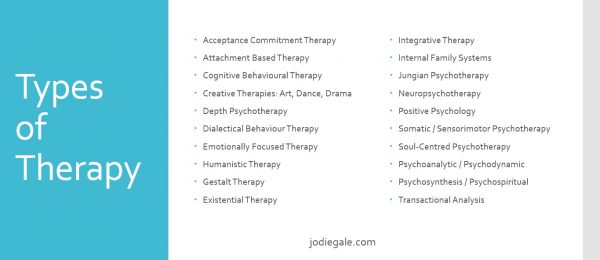
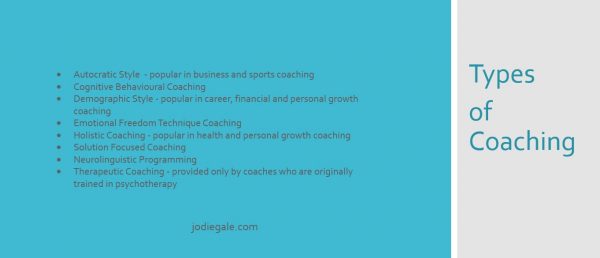






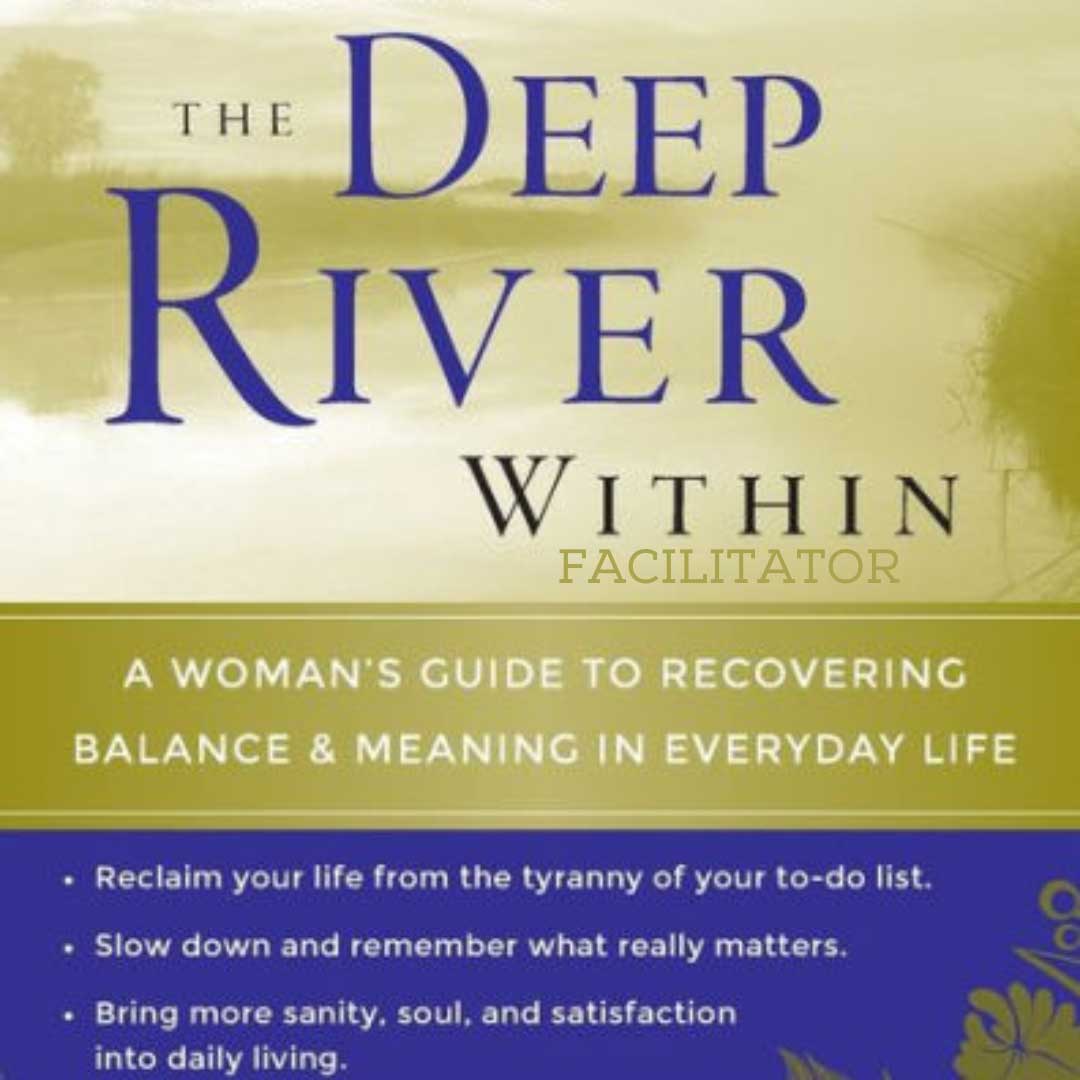
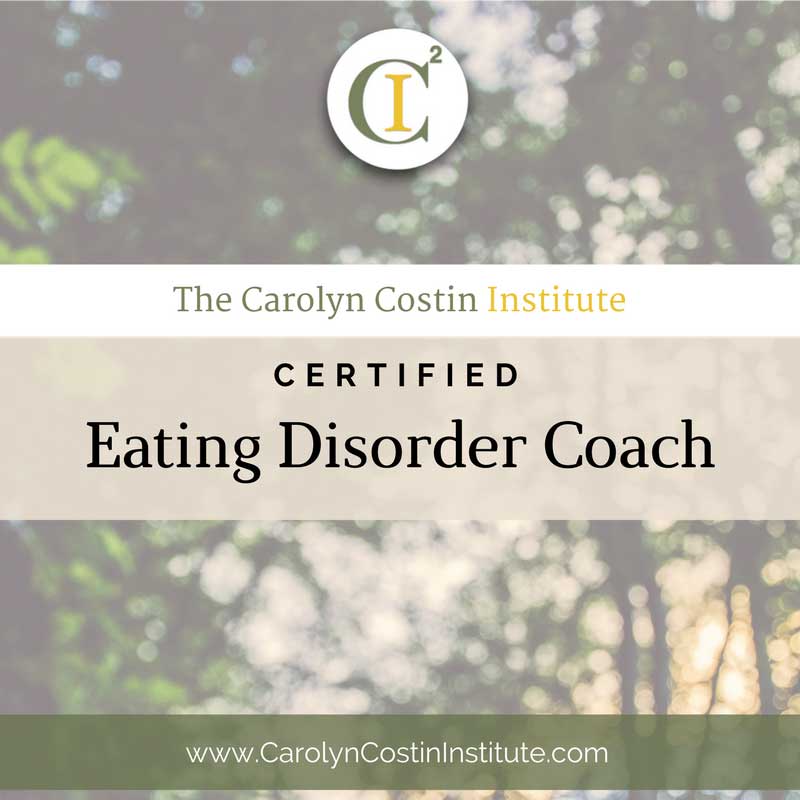
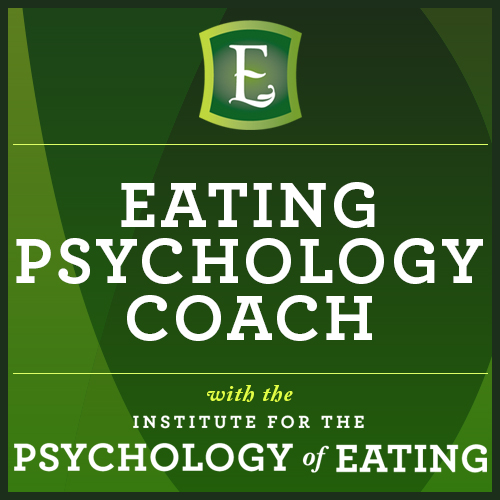
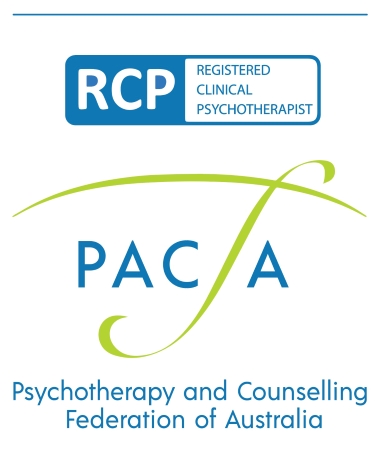
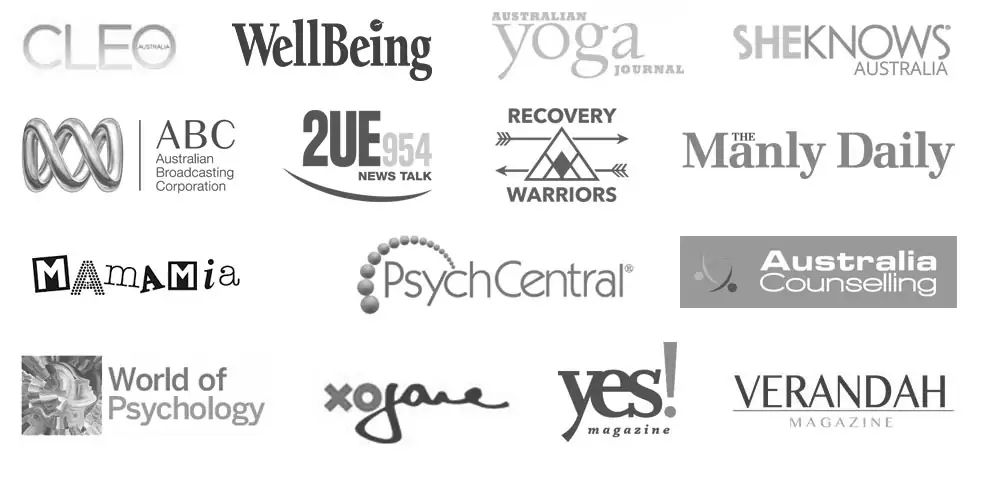

9 Responses
Great blog article Jodie ?? Synthesized a lot of important points. Thank you
Thank you :love: xxx
As a psychodynamic counsellor (MCouns) I just want to say thank you for articulating the difference so fluently and respectfully.
Thank so much for your feedback Jennie x
I learned so much from this, thank you. I’m a current therapist about to turn coach!
Thanks for your feedback 🙂 Good luck with your transition!
This is such a great, comprehensive explanation. I wish more people put as much thought into their explorations about the differences between these two services. Thank you Jodie!
thanks for your feedback Rachael
Hi Jodie
Thank you for this in-depth, well written article. It breaks in down so well and down to the detail! I have learnt such a lot from this explanation. I’m still not sure which coaching course to do, but I’m a bit clearer on some of the concerns and issues to be aware of.
Many thanks